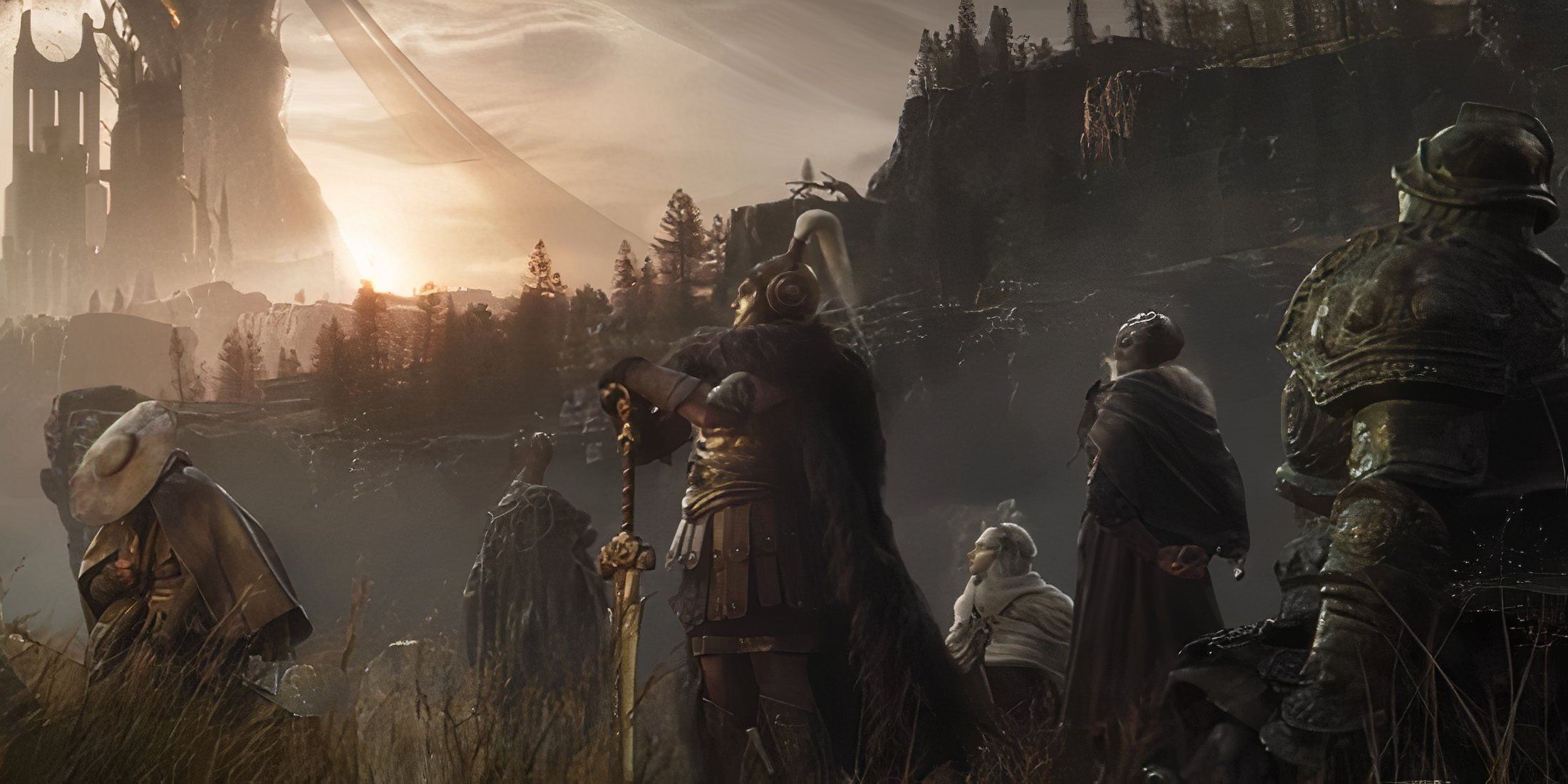The success of Elden Ring can be attributed to its unique blend of challenging gameplay, stunning visuals, and a rich narrative crafted in collaboration with George R.R. Martin, the author of *A Song of Ice and Fire*. Its open-world design, a departure from FromSoftware’s traditional linear structure, has captivated players and critics alike. The game’s popularity has translated into staggering sales figures, making it one of the most successful titles in recent gaming history. Elden Ring sales numbers are a testament to the game’s ability to appeal to both hardcore gamers and newcomers to the genre.
As we delve deeper into the world of Elden Ring, it’s essential to understand what makes these sales numbers so significant. Beyond the raw data, these figures reveal insights into consumer behavior, gaming trends, and the broader impact of FromSoftware’s masterpiece on the industry. Whether you’re a fan of the game or simply curious about its success, this article will explore every angle of Elden Ring’s sales performance and what it means for the future of gaming.
Table of Contents
- What Makes Elden Ring Sales Numbers So Impressive?
- How Did Elden Ring Achieve These Sales Numbers?
- Who Is Behind the Success of Elden Ring?
- Elden Ring Sales Numbers and the Gaming Industry
- Can Other Games Replicate Elden Ring’s Success?
- Elden Ring Sales Numbers: Future Predictions
- Why Do Elden Ring Sales Numbers Matter?
- Elden Ring Sales Numbers and Player Engagement
- How Does Elden Ring Compare to Other Games?
- What Can We Learn from Elden Ring Sales Numbers?
What Makes Elden Ring Sales Numbers So Impressive?
Elden Ring’s sales numbers are not just about the sheer volume of copies sold; they represent a shift in how gamers perceive and engage with open-world RPGs. The game sold over 12 million copies within its first three weeks of release, a feat that few titles in the industry can match. This rapid adoption is a testament to the game’s universal appeal, drawing in players from all walks of life. Elden Ring sales numbers have set a new benchmark for what is possible in the gaming industry.
Read also:Szas A Comprehensive Guide To Understanding And Mastering The Concept
What makes these numbers even more impressive is the game’s challenging nature. Unlike many mainstream titles, Elden Ring doesn’t shy away from difficulty. Instead, it embraces it, offering players a rewarding experience that requires skill, patience, and perseverance. This approach has resonated with gamers who crave depth and complexity, further fueling Elden Ring’s commercial success.
How Did Elden Ring Achieve These Sales Numbers?
Several factors contributed to Elden Ring’s remarkable sales performance. First and foremost is the game’s reputation. FromSoftware, the studio behind *Dark Souls* and *Bloodborne*, has built a loyal fanbase over the years. Gamers trust the studio to deliver high-quality, challenging experiences, and Elden Ring is no exception. The collaboration with George R.R. Martin added another layer of intrigue, drawing in fans of his literary works.
Marketing also played a crucial role. Bandai Namco’s promotional campaigns, including cinematic trailers and gameplay previews, generated immense hype leading up to the release. The game’s launch coincided with a period of heightened interest in gaming, further boosting its visibility. Elden Ring sales numbers reflect the effectiveness of these strategies in capturing the attention of both existing fans and new players.
Who Is Behind the Success of Elden Ring?
At the heart of Elden Ring’s success is a team of talented individuals who brought the game to life. Hidetaka Miyazaki, the visionary director at FromSoftware, played a pivotal role in shaping the game’s design and narrative. His leadership and creative vision have been instrumental in the studio’s success over the years.
Personal Details and Bio Data of Hidetaka Miyazaki
| Name | Hidetaka Miyazaki |
|---|---|
| Date of Birth | January 1, 1974 |
| Profession | Game Director, Designer |
| Notable Works | Dark Souls, Bloodborne, Sekiro: Shadows Die Twice, Elden Ring |
| Awards | Golden Joystick Awards, Game Developers Choice Awards |
Miyazaki’s collaboration with George R.R. Martin added depth to Elden Ring’s lore, creating a world that feels both familiar and refreshingly original. Together, they crafted a narrative that resonates with players on an emotional level, further enhancing the game’s appeal.
Elden Ring Sales Numbers and the Gaming Industry
Elden Ring’s success has had a ripple effect across the gaming industry, influencing trends and setting new standards for game development. Its sales numbers have demonstrated the viability of challenging, narrative-driven games in a market often dominated by casual titles. Developers are now taking note of what works and what doesn’t, using Elden Ring as a case study for future projects.
Read also:Christina Schwarzenegger A Deep Dive Into Her Life Career And Legacy
Can Other Games Replicate Elden Ring’s Success?
While Elden Ring’s success is undoubtedly impressive, replicating it is no easy feat. The game’s unique combination of gameplay, storytelling, and world-building sets it apart from its competitors. However, other developers can learn valuable lessons from its achievements. Focusing on quality, innovation, and player engagement can help other games carve out their own niche in the market.
Elden Ring Sales Numbers: Future Predictions
As Elden Ring continues to captivate players worldwide, its sales numbers are expected to grow even further. With potential expansions and downloadable content (DLC) on the horizon, the game’s longevity is virtually guaranteed. Industry analysts predict that Elden Ring sales numbers will remain a topic of discussion for years to come.
Why Do Elden Ring Sales Numbers Matter?
Elden Ring sales numbers matter because they reflect the game’s impact on the gaming industry and popular culture. These figures are not just a measure of commercial success; they also highlight the game’s ability to connect with players on a deeper level. Understanding these numbers provides valuable insights into consumer preferences and gaming trends.
Elden Ring Sales Numbers and Player Engagement
One of the key drivers behind Elden Ring’s sales numbers is its ability to engage players. The game’s challenging yet rewarding gameplay keeps players coming back for more, while its rich narrative and stunning visuals create an immersive experience. This high level of engagement has translated into sustained sales, even months after its release.
How Does Elden Ring Compare to Other Games?
When compared to other games in the same genre, Elden Ring stands out for its innovation and execution. While titles like *The Witcher 3* and *The Legend of Zelda: Breath of the Wild* have also achieved critical acclaim, Elden Ring’s unique blend of difficulty and storytelling sets it apart. Its sales numbers reflect this distinction, cementing its place as a modern classic.
What Can We Learn from Elden Ring Sales Numbers?
Elden Ring sales numbers offer valuable lessons for developers, marketers, and gamers alike. They highlight the importance of quality, innovation, and player engagement in achieving commercial success. By understanding what makes Elden Ring tick, the gaming industry can continue to evolve and thrive in the years to come.
In conclusion, Elden Ring’s sales numbers are more than just a reflection of its popularity—they are a testament to the game’s impact on the gaming industry and its ability to captivate players worldwide. Whether you’re a fan of the game or simply interested in its success, there’s no denying that Elden Ring has set a new standard for what is possible in gaming.

